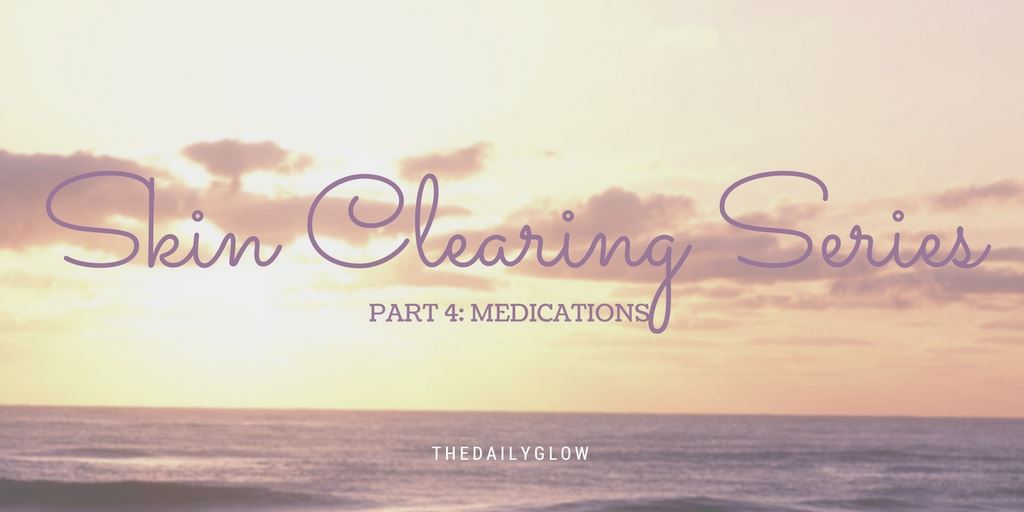
Skin Clearing Series: part 4 – medications
Medications that target acne are divided into two camps – topical medications that you apply to your skin, and medications you take on a daily basis. I’ve touched on the topicals before – benzoyl peroxide and prescription retinols are also joined by antibiotics and can be prescribed by a dermatologist. These can be useful for anyone that is still seriously struggling to keep breakouts at bay, despite cleaning up their diet and skin care/hygiene. Unfortunately, even prescription skincare may still not be enough for everyone, but there are more hardline treatments available if your skin is making you want to hide under your duvet for the foreseeable future.

Oral Antibiotics
Antibiotics are quite commonly prescribed for resistant acne and target the bacteria responsible. I have heard both success stories and total failure – some people can feel quite sick when taking them (similar to antibiotics for a chest infection or dental abscess, you can feel nauseous) as usually they need to be taken on an empty stomach, and require strictly sticking to the timetable of taking them for effective results. Some people do find their skin clears up really well – do note that if you’re thinking about having laser for your legs, you cannot be on antibiotics as your skin becomes more sensitive to treatments like this.
Oral Contraceptive Pill
Obviously only suitable for females (lol), the pill can help regulate hormones and therefore influences sebum production. Dianette is the best for acne, but far less commonly prescribed currently due to the increased risk of blot clots (which can be fatal, even if you are not deemed to be a particularly “at risk” person). Success is recorded with other pill types also, so discussion with your GP can yield one to suit your needs.

Roaccutane
This is the the last resort for many people and is actually an oral version of retinoids (retinol). It has revolutionised the treatment of acne. It works in part by suppressing the production of sebum, and extremely dry, flaking skin is a well known side effect. Depression is a more controversial side effect (for obvious reasons), but the latest research is pointing out that acne itself can cause depression, and depression is most common in the age group most prone to acne (teenagers). It is not suitable during pregnancy (like the above medications, but in a more serious way) as it can cause major birth defects – 2 methods of birth control are required for females of childbearing age during treatment as a result. Roaccutane also can be quite toxic to the liver, so may not be an option for people with liver disease. Notwithstanding the serious side effects, when monitored closely by your doctor, roaccutane can be life changing for someone with severe acne – and if you’re dealing with acne that is just not responding to any other form of treatment, I would definitely discuss this medication with your dermatologist.
Have you tried any of the above medications, or do you know anyone who has?

